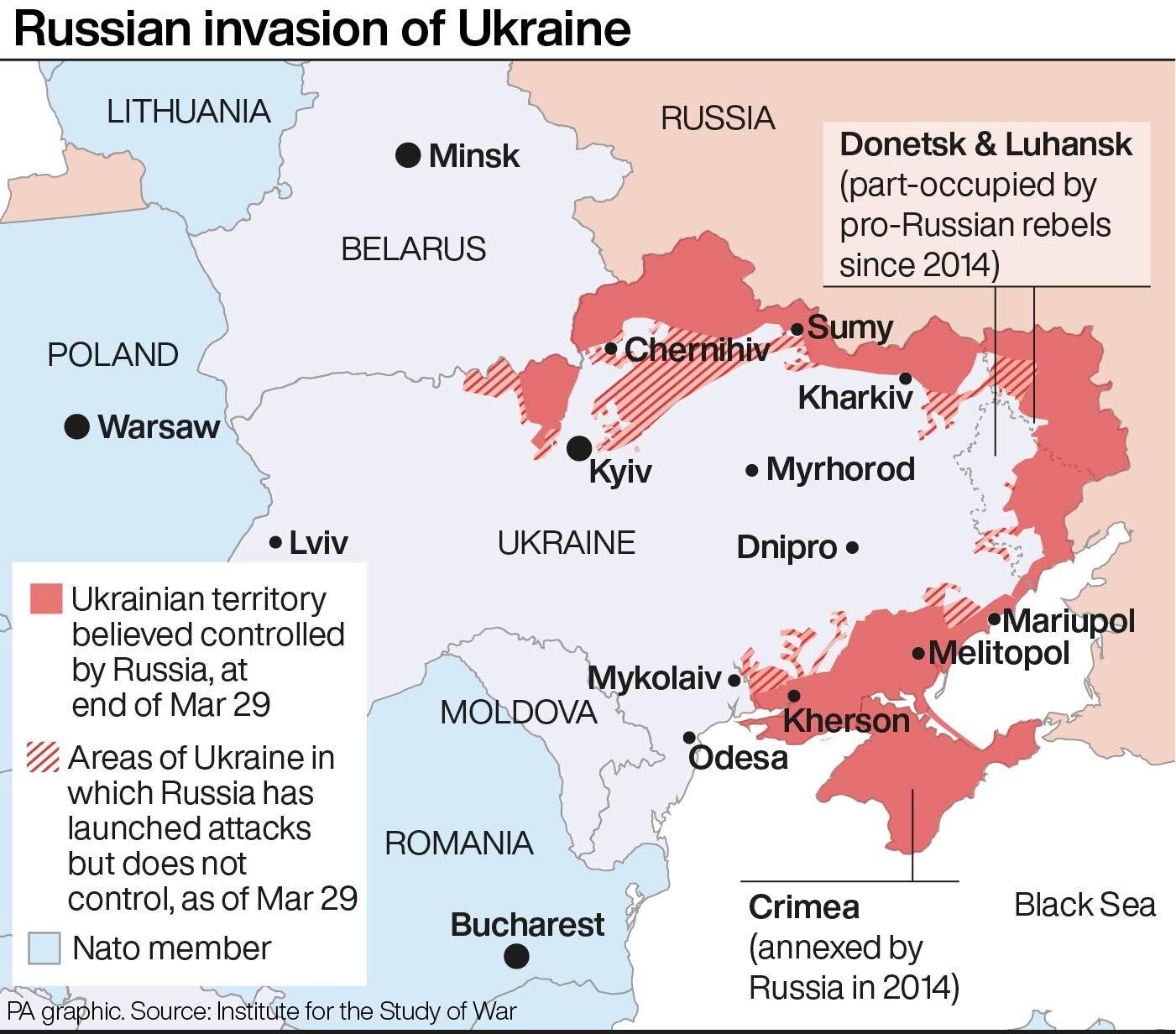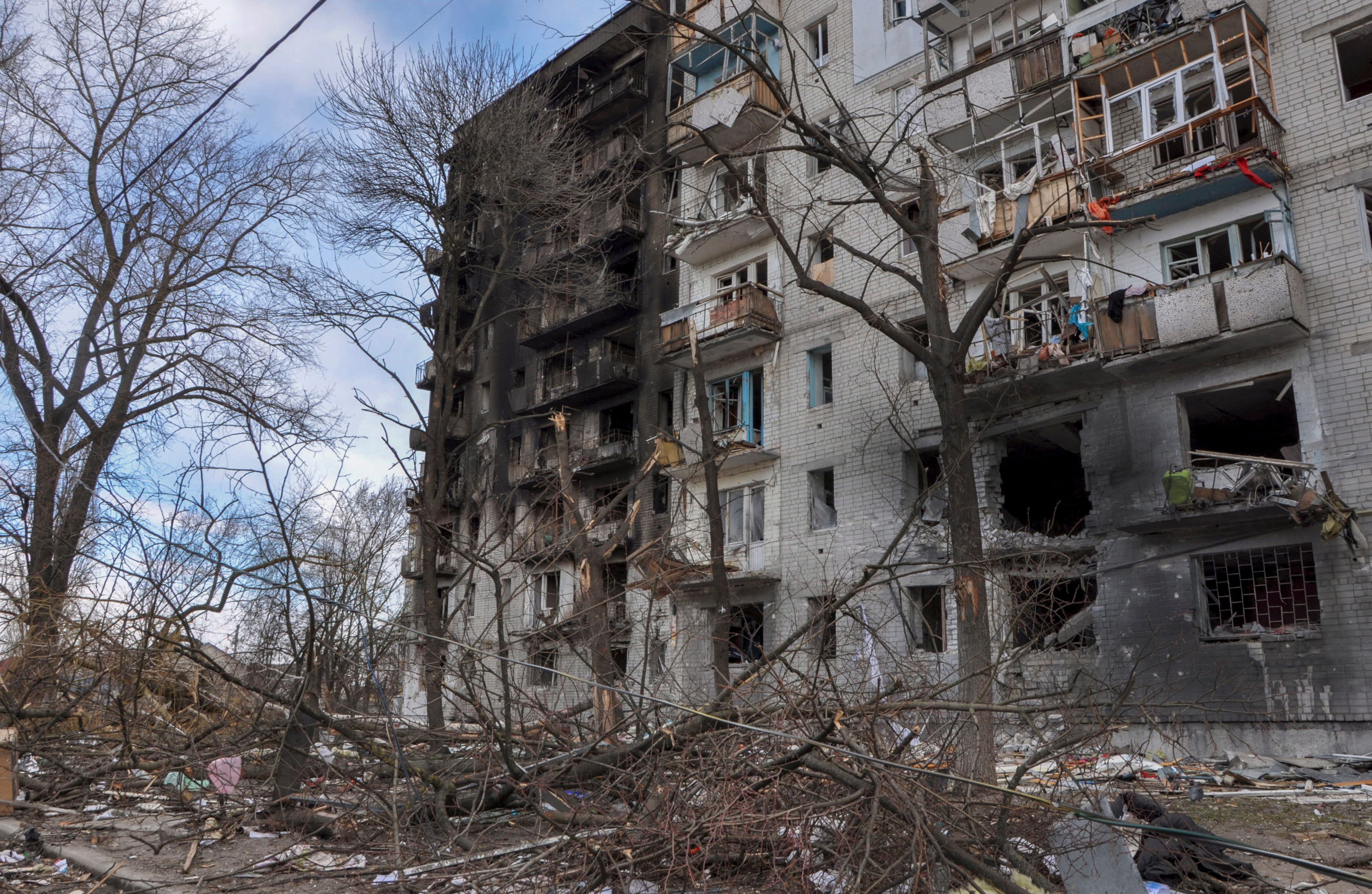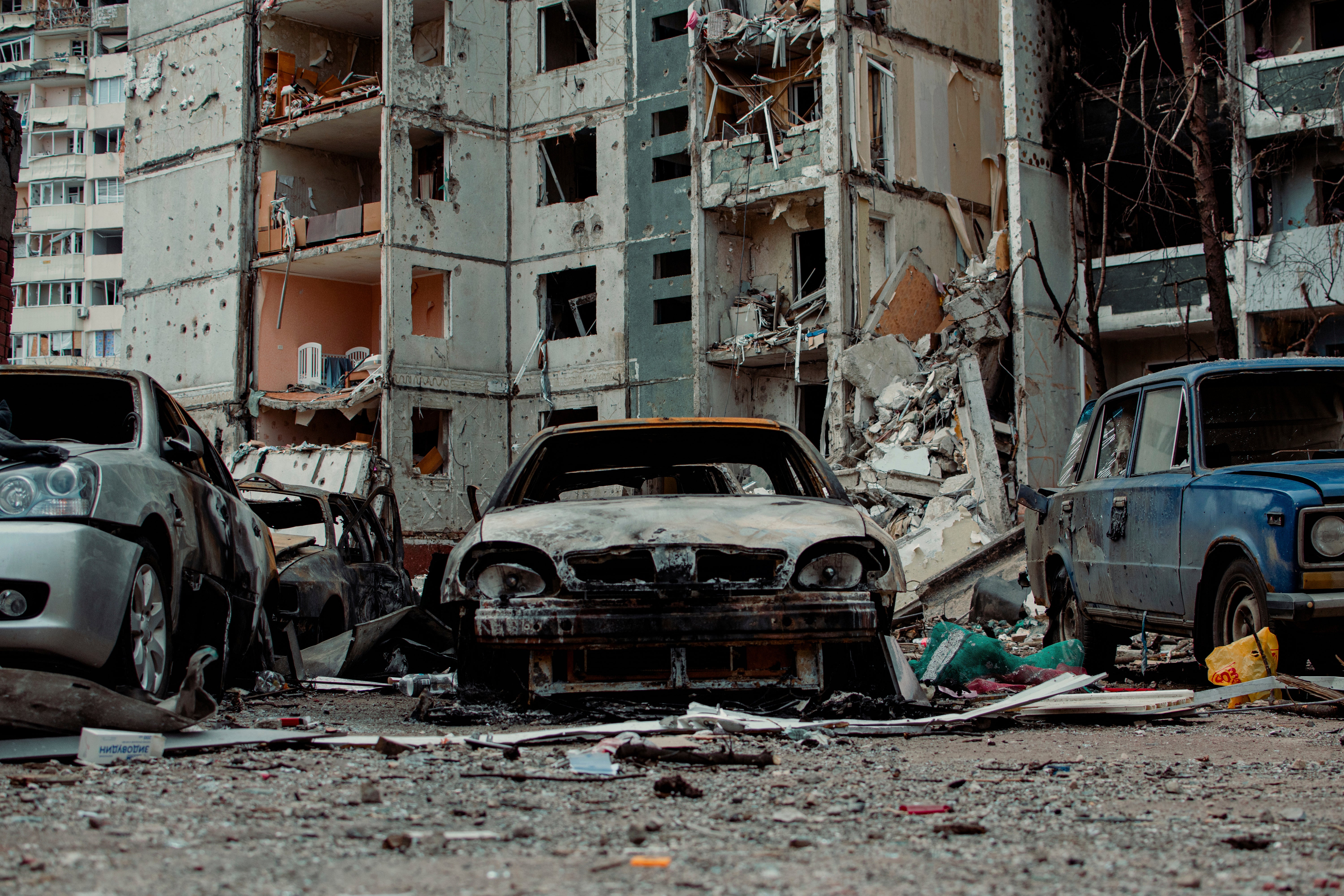
Russia has continued to bombard the northern Ukrainian city of Chernihiv with “significant” shelling and missile strikes despite saying it would scale back military activity in the area, according to UK defence intelligence analysts.
Moscow vowed after peace talks in Instanbul on Tuesday to “radically” scale down its offensive around the capital, Kyiv, and Chernihiv, having already refocused its invasion on eastern Ukraine.
However, Ukrainian president Volodomyr Zelensky and Western nations have expressed scepticism about the Kremlin’s pledge, and hours after the announcement, fresh Russian strikes were reported near the capital.
In its latest intelligence update, the UK’s Ministry of Defence (MoD) warned of further heavy fighting around both cities, undermining hopes for progress toward ending the brutal war, which entered its sixth week on Thursday.
“Despite Russian statements indicating an intended reduction of military activity around Chernihiv, significant Russian shelling and missile strikes have continued,” the update said.
”Russian forces continue to hold positions to the east and west of Kyiv despite the withdrawal of a limited number of units. Heavy fighting will likely take place in the suburbs of the city in coming days.
“Heavy fighting continues in Mariupol, a key objective of Russian forces, however Ukrainian forces remain in control of the centre of the city.”

Talks between Ukraine and Russia are set to resume on Friday by video-link, according to the head of the Ukrainian delegation, David Arakhamia.
But the backdrop to future negotiations is fraught after Russia appeared to row back on a partial withdrawal from the north that had been promised in order to “increase mutual trust and create conditions for further negotiations”.

Olexander Lomako, secretary of the Chernihiv city council, said the Russian announcement turned out to be “a complete lie”.
“At night they didn't decrease, but vice versa increased the intensity of military action,” Mr Lomako said.

In Mariupol, which has suffered near constant bombardment, a convoy of Ukrainian buses has been dispatched in an attempt to deliver humanitarian supplies and bring out trapped civilians.
Repeated attempts to organise safe corridors have until now failed, with each side blaming the other.
On Wednesday, the UN gave a further stark assessment of the human cost of the conflict, confirming that more than 4 million people have now fled their homes for safety in neighbouring countries including Poland, which has welcomed by far the biggest number of refugees.







